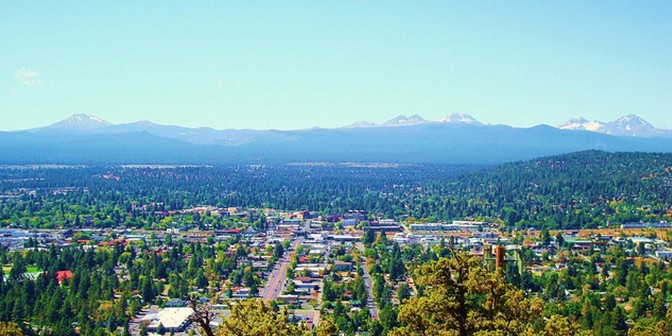According to Bend residents Helen Seidler and Bob Lorenzen an ordinance currently being discussed by the Bend City Council will help not only to reduce greenhouse gas emissions in the area, but is likely to be a boon to local businesses. The Council is slated to vote on the ordinance on June 15.
“If your local and regional economies depend on outdoor recreation in the mountains, forests and waterways, it follows that damage to those natural resources that draw visitors is going to have a widespread, negative effect on your business activity,” says Helen Seidler, one of a group of citizens supporting the newly-proposed ordinance who have studied local climate change responses throughout the West.
“We are already seeing the effect of climate change through drought and reduced snowpack. Our economic prosperity dictates that we get a handle on climate change at the local level. We owe it to ourselves and to all those who follow us.”
The ordinance lays out a process for the City to develop climate action plans both for municipal operations and the community at-large, and sets science-based targets for reducing local greenhouse gas emissions. The ordinance would create a climate commission comprised of
community members to draft the climate plans, which would then be approved by the city
council.
Bob Lorenzen, another member of the citizen’s group, said research indicates that economic benefits of such an ordinance match or exceed the possible costs. This is especially true for communities such as Bend where the local economy is so closely tied to enjoyment and utilization of forests, rivers and natural areas increasingly compromised by climate change. He added that other benefits to local business and economic activities would accrue from passage of the ordinance.
“What we are seeing in the strategies adopted by other communities like Bend is not only stability and growth for recreation and tourism, but also a great potential for new job creation in local businesses that provide building energy efficiency retro-fits, energy efficient home and commercial building design and construction, and solar electric power system installation to meet community goals for reduced greenhouse gas emission, “says Lorenzen.
Seidler noted that energy conservation strategies make direct bottom-line contributions to local businesses, while other strategies aimed at reducing greenhouse gas emissions contribute to a more sustainable, livable community—characteristics that have been shown to stimulate more diverse economic activity.
The proposed ordinance calls for reducing the use of fossil fuels for both the City of Bend and the general community by 40 percent by 2030 and 70 percent by 2050 (based on fossil fuel usage from 2010 or more recent years).
Lorenzen noted that the City of Bend has made considerable progress developing and implementing sustainability policies to help manage growth and promote livability. The proposed climate ordinance builds on those efforts and promotes and even more comprehensive framework for community planning.
“The climate ordinance is not redundant with Bend’s current sustainability strategies, in fact, they are highly complementary,” Lorenzen said. “Furthermore, as with any good planning arrangement, the climate ordinance mandates tracking, review and reporting mechanisms to assess progress in meeting targets. This is also part of the process of assuring that we review best available science on a regular basis, so that we can adjust our plans and strategies.”
5 Key Components of the Draft Bend Climate Action Ordinance:
- Sets specific, measurable goals based on the best available science:
o For City government ! Carbon neutral by 2030! Reduce fossil fuel use by 40 percent by 2030 and 70 percent by 2050.
o For the community as a whole (individuals and businesses) ! Reduce fossil fuel use by 40 percent by 2030 and 70 percent by 2050.
- Establishes a timeline for creating climate action plans, first for City government and then for the community as a whole.
- Ensures public engagement in creating and implementing the action plans.
- Directs the City Manager to hire adequate staff to support development and implementation of the action plans.
- Requires periodic reports on progress towards meeting the goals and mid–‐course corrections, if needed.
Helen Seidler, 541-977-7531
Bob Lorenzen, 541-554-6806





